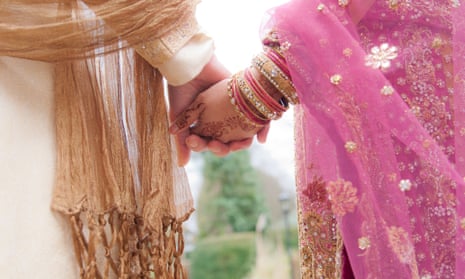It was a confession by a newlywed friend about her disastrous sex life that gave Umm Muladhat an idea for a groundbreaking book.
Published last week, The Muslimah Sex Manual: A Halal Guide to Mind Blowing Sex is the first such guide written by a Muslim woman. The author has chosen to stay anonymous, using an alias.
Candid advice is offered on everything from kissing to cowgirl positions – with the core message being that Muslim women can and should enjoy a varied sex life and take the lead in physical relationships.
While some critics have accused the author of fetishising Muslim women and encouraging promiscuity, the book has been welcomed by readers who have lauded her as a Muslim Belle De Jour, bringing a taboo subject into the open. “I’ve received encouraging feedback, but also a significant number of demeaning and disgusting messages,” said Muladhat. “One woman said it’s not needed, they learn everything from their mothers. I doubt any mother speaks in as explicit detail as I have.
“I put an emphasis on having sex only with your spouse, but having the full range of sexual experiences with that spouse. Islamically, there’s an emphasis on enjoying physical relationships within the context of marriage, not just for procreation. It is the wife’s right that her husband satisfy her sexually.”
Muslim women’s organisations have praised her, saying the book will empower Muslim women and protect them from entering into sexually abusive relationships. Shaista Gohir, chair of the Muslim Women’s Network UK which runs the Muslim Women’s Helpline, said: “I’m all for women talking about sex. Why shouldn’t they? Talking about sex in Islam is not new, and past scholars highlighted the importance of sexual pleasure for women, which included advice for men to ensure this happens.
“However, in practice, sex seems to all be about men’s pleasure. Cases often come up on our helpline where women’s complaints range from being forced into participating in unwanted sexual acts, rape, to being treated like a piece of meat with zero effort made to ensure the woman has an orgasm. I suspect the problem is much bigger, as most would feel too embarrassed to talk about it.”
Muladhat said she felt compelled to write the book after she discovered women were entering into a lifelong commitment with little knowledge about sex other than snippets gleaned from the back of guides to marriage, with an emphasis on what was forbidden, rather than what was allowed, and with little from the perspective of women.
“I saw many Muslim women were getting married with no real avenue for learning about sex,” she said. “Couples knew ‘penis into vagina’, but little on how to spice up their sex life. Different positions, different things to try in bed – it’s all absent in contemporary Islamic literature. For those in the west, certain things permeate through osmosis, so women have heard about BDSM and doggy style, but only in a vague sense.”
Many misconceptions that the book deals with stem from cultural attitudes that decent women don’t enjoy sex and should “lie back and think of morning prayers”. Gohir said: “Guilt associated with sex is drummed into women from childhood. It’s portrayed as something dirty where women’s sexuality is often controlled. This does result in women going into marriages not having the confidence to say ‘I am not enjoying this’ or ‘I want this’. It’s time this topic is spoken about more openly.”
Muladhat also found that confusion about what sex acts were permissible in Islam was inhibiting women from experimenting in the bedroom. “Outside the house, culture varies a lot. Inside the bedroom, the concerns and desires of Muslim women from around the world were strikingly similar,” she said.
After holding informal workshops, she set up a website to ascertain interest in a book. Such was the response, that Muladhat is already considering a follow-up, after being inundated with emails from men also looking for advice. “I didn’t find any guides to sex aimed at Muslims, women or otherwise. There are plenty of books already on marriage, but spicing up a Muslim’s sex life while staying halal? There’s nothing.
“I’ve received dozens of emails from men asking if I had any plans to write a companion book to teach them how to please their wives in bed. I’ve taken that into consideration and plan to write a follow-up if this book is successful.”
The author chose to stay anonymous, partly for fear of a backlash but also because she didn’t want to be known in her tight-knit community as the “sex book aunty”. “Initially, I thought my real name would add credibility, but it’s a sensitive topic,” said Muladhat. “Whether it’s ethnicity, socioeconomic status or religiosity, people who want to attack the book will invariably do so by attacking the author. By separating my real self from the book, people are forced to deal with the content.”
What she will reveal, though, is that she is an American-born psychology graduate and much of the book is based on her personal experience of keeping the spark alive within her own marriage, along with tips picked up from friends and old copies of Cosmopolitan.
“My biggest qualification is the knowledge which comes only with experience. A doctor can explain the biology, but if you want an attractive physique you’re better off learning from a bodybuilder than an overweight doctor.”
